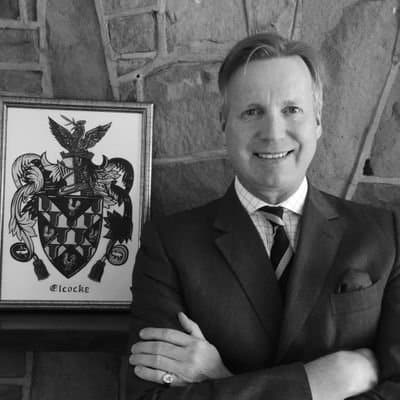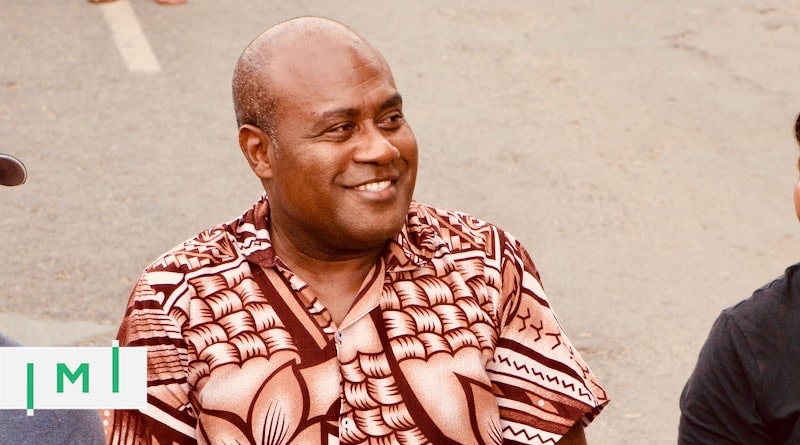All Citizens “Equal in The Eyes of The Vanuatu Govt.” Assures Chairman Warsal in Response to Media Reports
Vanuatu’s citizenship by investment programs have grabbed headlines over the last week chiefly for two reasons: First because the government had signed an exclusive agreement with one of its Master Agents to handle applications from stateless investors. Second, because the country’s Deputy Prime Minister told Radio New Zealand that the government was preparing to issue yellow passports to those naturalizing via investment (as opposed to the ordinary green one issued to natural-born ni-Vanuatu), a statement that drew fervent reactions from the RCBI-community.
Commenters on Twitter likened the notion of Vanuatu introducing a secondary passport to the Tongan Protected Persons Passports from decades ago and suggested the consequences to Vanuatu would be highly unfavorable.
No country should distinguish between naturalised and regular citizens or issue second class passports to pseudo/“honorary” citizens. What Tonga did 30 years ago with “protected person passports” was phoney. If Vanuatu now goes down the same route it would be a shame.
— Hon. Philippe A. May 梅正熙 (@phmay_sg) September 19, 2020
In a press statement issued today, prepared especially for IMI, the Chairman of Vanuatu’s Citizenship Commission, Ronald Warsal, for the first time addresses directly several recent controversies regarding the program, the administration of which he took over earlier this year.
“Questionable opinion, speculation, and bias presented as fact”
In it, Warsal explains that the dual citizenship programs of Vanuatu are a legacy of the erstwhile administration and subject to continual review and adjustment. He also indicated that, while the government welcomed constructive debate, it rejected “questionable opinion, speculation and bias presented as fact, with the aim of undermining the Programs […], which he called “attempts to discredit the firmly founded and secured rights and protections of our highly valued citizens[…]”
In what may be assumed is a reference to the media statements of the Deputy PM, Chairman Warsal emphasizes that the Commission alone is authorized to “suggest, create, and communicate program modifications,” and that any comments made by others should be considered “unofficial or personal remarks and not government policy”.
In what would appear to be a response to questions regarding plans to naturalize stateless investors, Chairman Warsal pointed out that “even when agreements in principle are made, there is still a further process of consultation and validation to be conducted before such initiatives can be formally launched […]”.
Any omissions or ambiguities “will be identified and rectified”
Most significance, however, will be attached to the Chairman’s comments as regards the feared differential treatment of natural-born and naturalized ni-Vanuatu. Warsal emphatically states that, in the eyes of the Vanuatu government, no such distinction exists and that if any legislative shortcomings might bring that into question, these will be addressed in due course:
“Finally, all Vanuatu Citizens who have achieved Citizenship under any of the existing or former versions of the Citizenship by Investment Program are equal in the eyes of the Vanuatu Government and are to be assured of their rights and privileges as Ni-Vanuatu, enshrined under the existing Citizenship Act Cap 112. Any omissions or ambiguities that may exist in the Citizenship Act Cap 112 which are cause for concern will be identified and rectified during an on-going review process conducted by the current government.”

James E. Harris, Chief Executive of the Vanuatu Investment Migration Bureau and an authorized government agent, commended Chairman Warsal’s statement for its proactivity in dispelling doubts about the program, an approach that did not characterize previous administrations’ handling of the matter.
“It is very encouraging to see the Vanuatu Citizenship Commission adopting a robust stance in response to the questions and challenges surrounding the DSP that have been forthcoming in recent weeks,” said Harris. “Much of the controversy swirling around the Vanuatu program is down to miscommunication, which fuels the speculation mentioned here by the Chairman. In releasing this statement through IMI Daily, Chairman Ronald Warsal sets a welcome precedent for proactive, decisive engagement by the Vanuatu Government with the international community of CBI professionals and other concerned program observers.”
Where previous Vanuatu administrations have chosen not to engage the international RCBI-community, the new government has been actively addressing issues of concern and is increasingly “taking control of the message”.
“Vanuatu has long needed a single, authoritative voice to clearly articulate intentions and policy/regulation changes – and most importantly to control the narrative around the DSP,” Harris pointed out. “Given the criticality of the Vanuatu Citizenship Program for Vanuatu’s economic survival under current conditions, it is particularly welcome to learn that the government is actively seeking third-party advice for evolution of the DSP as a sustainable and viable program over the long-term.”
Read the press statement in its entirety here.
Christian Henrik Nesheim is the founder and editor of Investment Migration Insider, the #1 magazine – online or offline – for residency and citizenship by investment. He is an internationally recognized expert, speaker, documentary producer, and writer on the subject of investment migration, whose work is cited in the Economist, Bloomberg, Fortune, Forbes, Newsweek, and Business Insider. Norwegian by birth, Christian has spent the last 16 years in the United States, China, Spain, and Portugal.


